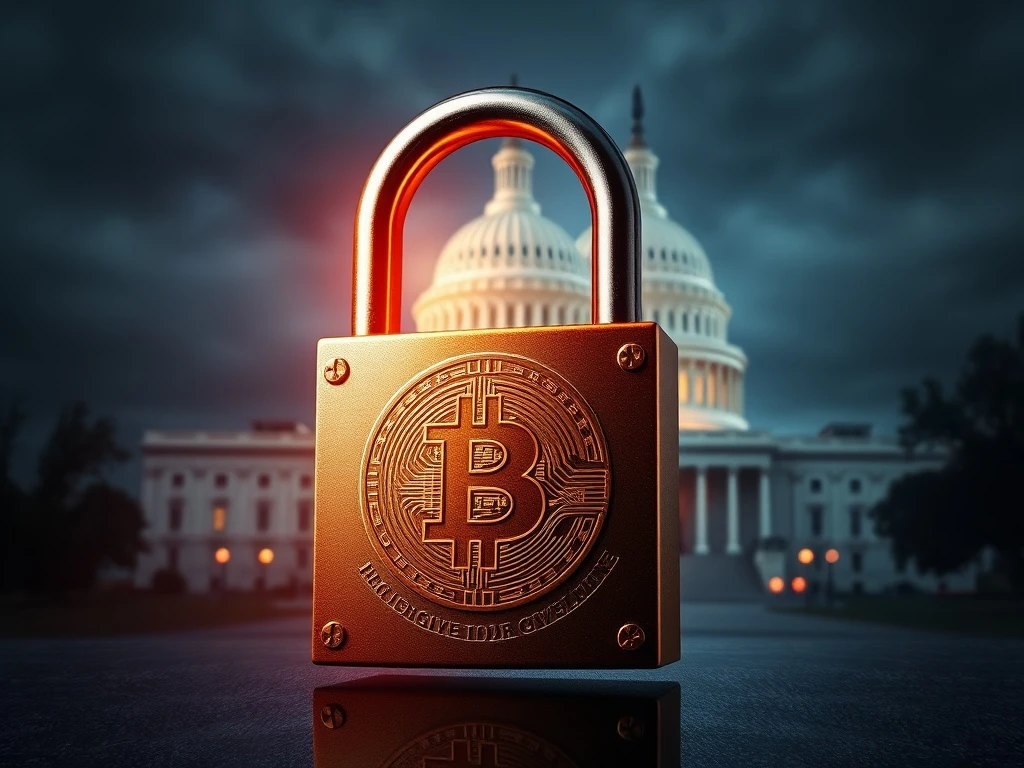Bitcoin News: U.S. Government’s Secret Bitcoin Stash Sparks Fierce Debate on Transparency and Market Stability

In a move that has sent shockwaves through the crypto community, the U.S. government continues to keep its Bitcoin holdings under tight wraps. The White House Cryptocurrency Council recently confirmed this controversial policy, citing national security and market stability as key reasons. But what does this mean for Bitcoin investors and the broader cryptocurrency ecosystem?
Why Are U.S. Government Bitcoin Holdings Classified?
The Executive Director of the White House Cryptocurrency Council has made it clear: details about government-held digital assets won’t be made public anytime soon. This decision stems from three primary concerns:
- Preventing market manipulation through sudden disclosures
- Protecting against potential cyber threats and exploitation
- Maintaining strategic advantages in global crypto markets
The Transparency Debate in Bitcoin News
This policy has ignited a fiery debate within the crypto space. Proponents of transparency argue that:
| Transparency Advocates | Government Position |
|---|---|
| Builds trust in crypto markets | Protects against volatility |
| Allows for better price discovery | Prevents strategic disadvantage |
| Aligns with crypto’s decentralized ethos | Maintains national security |
Impact on Crypto Market Stability
The classified nature of these Bitcoin holdings creates a unique dynamic in cryptocurrency markets:
- Reduces sudden price shocks from government transactions
- Creates uncertainty about potential future sell pressure
- May discourage some institutional investors seeking clarity
- Could paradoxically increase long-term stability
White House Cryptocurrency Council’s Strategic Role
This powerful advisory body is shaping America’s digital asset future through:
- Developing balanced regulatory frameworks
- Advising on national crypto strategies
- Promoting responsible innovation
- Positioning the U.S. in global crypto leadership
What’s Next for Bitcoin and Government Policy?
As the crypto landscape evolves, expect continued tension between transparency and security. The government’s approach suggests a cautious path forward that prioritizes:
- National security over full disclosure
- Market stability over immediate transparency
- Strategic advantage over public scrutiny
The debate over classified Bitcoin holdings highlights the growing pains of cryptocurrency integration into traditional financial and government systems. While secrecy may frustrate transparency advocates, it reflects the government’s attempt to navigate uncharted waters carefully. As Bitcoin continues its march toward mainstream adoption, this balance between disclosure and discretion will remain a critical issue.
Frequently Asked Questions
Why won’t the U.S. government reveal its Bitcoin holdings?
Officials cite national security concerns and potential market disruption as primary reasons for keeping this information classified.
How might classified Bitcoin holdings affect the crypto market?
While it creates some uncertainty, many experts believe it prevents sudden volatility from large government transactions becoming public.
What is the White House Cryptocurrency Council?
It’s an advisory body that helps shape U.S. digital asset policy, balancing innovation with security and market stability concerns.
Could the government’s Bitcoin policy change?
While possible, any changes would likely come gradually as cryptocurrency becomes more integrated into traditional financial systems.
How much Bitcoin does the U.S. government actually hold?
The exact amount remains classified, though estimates suggest holdings from various seizures could be substantial.










